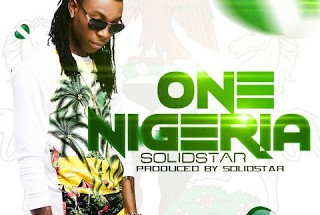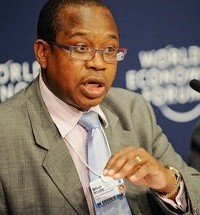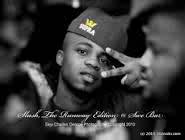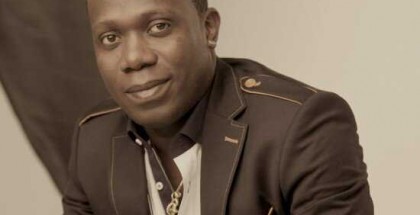Nelson Mandela: 10 memorable moments
konknaijaboy | On 19, Jul 2013
Few modern-day world leaders are revered as much as Nelson Rolihlahla Mandela. Then again, few can lay claim to a life like Mandela’s. His father had a premonition when he granted his son the birth name, Rolihlahla — which roughly translates to “pull a tree branch” or, colloquially, “troublemaker.”
Mandela’s legacy encompasses innumerable accomplishments that changed nations. Scroll through to see 10 defining moments.
First all-black law firm, 1952: With his former schoolmate and African National Congress Youth League co-founder Oliver Tambo, Mandela opened the first all-black law firm in Africa in August. At the time, white-run law firms often charged blacks higher fees for criminal and civil cases. They had no shortage of clients, at a time when blacks could be charged for walking through the wrong door, riding the wrong bus, sipping from the wrong fountain or being evicted from lands given to whites. “Every day,” Mandela wrote in his autobiography, “we heard and saw the thousands of humiliations that ordinary Africans confronted every day of their lives.” The building fell into neglect but was just recently converted to a museum
Marriage to Winnie Madikizela, 1958: Mandela’s marriage to Winnie Madikizela was his second. His first marriage ended in 1957, unable to stand up to his political pursuits and his wife’s religion (Jehovah’s Witnesses). They met in 1957, when he stood trial with 155 others in the Treason Trial. They had two children together. During his years in prison, she worked against apartheid on his behalf and earned the moniker Mother of the Nation, but the taint of criminal activities and adultery led to her political and personal downfall in later years
-

-
The move to fight, Spear of the Nation, 1961: Nine months after Mandela and others were found not-guilty in the Treason Trial (1956-1961), Mandela launched Umkhonto we Sizwe (Spear of the Nation), or MK, on Dec. 16, on the 123rd anniversary of the Battle of the Blood River, when the Afrikaners defeated the Zulus. After years of the African National Congress advocating nonviolence, MK was a militant response to increasingly repressive laws, martial law, and actions, such as the Sharpeville Massacre, in which 69 nonviolent protestors were killed. The goal: a multiracial democracy. Less than a year later, Mandela was arrested for, among other charges, inciting workers to strike
-

-
“I am prepared to die” — the speech from the dock, 1964: A raid of the MK hideout led to the 1963 Rivonia Trial, in which Mandela (in solitary confinement at the time) and nine others were accused of sabotage and conspiracy. The penalty was death. On April 20, Mandela decided not to undergo cross-examination and instead read, for four hours, the famous speech from the dock. “I have fought against white domination, and I have fought against black domination,” he concluded. “I have cherished the ideal of a democratic and free society in which all persons live together in harmony and with equal opportunities. It is an ideal which I hope to live for and to achieve. But if needs be, it is an ideal for which I am prepared to die
-

-
The campaign to free Mandela, 1978: International interest rose again when Mandela turned 60. He was 18 years into a life sentence on Robben Island. There, an iron sanitary bucket was his toilet, a single letter could come only once a month, a monthly visitor was allowed for 30 minutes, and he pounded stones in a lime quarry. Throughout his time, however, Mandela read prodigiously and studied law. The government had tried to erase his existence, banning his images and words, but the apartheid regime shocked the world and South Africa itself when police fired on a peaceful march of high school students, in the 1976 Soweta Youth Uprising. The African National Congress regained credibility, as did Mandela as its leader in abstentia. When the United Nations expressed solidarity with the country’s liberation movements, 85,000 people signed petitions for Mandela’s release.
-

-
Mandela’s release from prison, 1990 : Mandela walked free from Victor Verster prison on February 11, 1990, and wife Winnie was on hand. Despite the revival in international support on his 60th birthday, it had taken another 12 years for his release. Moved from Robben Island to Pollsmoor Prison in 1982, Mandela engaged in years of secret negotiation with the National Intelligence Service, then with the government under leader P.W. Botha. Despite Botha’s goals to release Mandela, the freedom fighter wasn’t released until Botha suffered a stroke and was replaced by F.W. de Klerk.
-

-
The end of apartheid, 1993: After 45 years, the system of apartheid finally ended. Right-wing whites assassinated senior African National Congress leader Chris Hani to derail progress, but Mandela was credited in handling the crisis and shepherding the country to peace. With President F.W de Klerk, he received the Nobel Peace Prize on December 10, 1993 at Oslo’s city hall
-

-
The presidential election of Nelson Mandela, 1994: Nearly 20 million ballots in South Africa’s first nonracial, democratic elections were cast, and Mandela became the country’s first black president. That same year, his autobiography “Long Walk to Freedom,” which he had written in secret while in prison, was published
-

-
Marriage to Graça Michel, 1998: Mandela married Graça Machel, widow of the former Mozambican President Samora Machel, on his 80th birthday. The next year, the diplomat and master negotiator declared, “I don’t want to reach 100 years whilst I am still trying to bring about a solution in some complicated international issue.”
Source: YAHOO

















